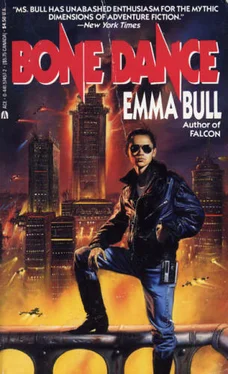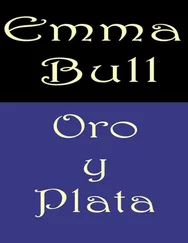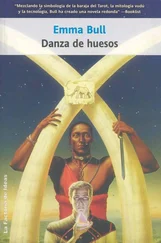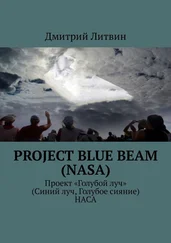“Josh said I should.”
“I wanted to know, back when you were still sick, if you’d taken a vow not to ask questions. Now you ask ‘em because you’re told to?”
I felt the same rush of irritation I had with Josh. “When have I ever done what I was told?”
Around us was a fury of crickets, but I thought I heard her draw breath. “Always,” she said. “Because it’s the easy path, and the one you’re least noticed on.”
I had a powerful longing to turn and go. “Tell me about the town, Sher. I want to know.”
“Why do you want to know?”
I thought of the camel, and Josh saying that the character of the town might have a little to do with the zoo. And Frances’s frivolous comment about the cooking school. “Because I like it here. I’d say you don’t have to tell me if you don’t want to, but if you didn’t want to, you’d have told me so and gone to bed by now.”
“Sparrow,” she said in an odd, unsupported voice. “Why do you want to know?”
I did turn then, and took three steps toward the circle. The movement shook a thought loose. The postcard lying on the floor in LeRoy’s attic, face up in front of the only person in the community who had seen that view before. And the books we were looking for, stored where they would set off that cascade when moved, just as the cards in a tarot deck, if you believed it worked that way, always came off the stack in the right order.
And Theo being a friend of Sher’s, and me knowing both of them; Sher being friends with China Black; meeting Frances on the bridge; Mick finding my body in the first place. Further back, that I had come to this City, and stayed, and further yet, that I’d been brought to life at all. We, the tarot cards, had come off the deck in order.
I faced Sherrea, queasy with nerves. “Because I think I know half a secret, and I can’t keep it properly until I know the rest. Because whoever’s shuffling is stacking the deck. Why did Josh ask if I knew about hoodoo, then tell me to ask you about the town?”
For a moment she didn’t answer. Then: “Maiden, Mother, and Crone. I didn’t think you were gonna do it.”
“Do what !” I said, my patience frayed.
“Prove you knew enough to understand the answers, dipshit,” she told me happily. “I’m gonna fetch a candle. If I tell you to wait under the big tree, will you trust me to come back and answer you?”
So I stood under the big tree and waited for her. I could see the stars between the heavy branches. The grass of the circle, faintly reflective with dew, was a little lighter than the sky.
I was still queasy. It was as if my stomach knew something my reason didn’t, about what I had asked, what I was about to find out. It was hard not to go straight to the farmhouse and lock the door behind me. I sat down, leaned against the trunk, hugged my knees, and tried to think of nothing.
Then I looked up to find Sher standing over me. “ Santos , this isn’t even the hard part,” she said.
“I don’t know what it’s a part of .”
She dropped down on the grass in front of me. In her hand was a little lantern, glass framed in tin with a squat white candle inside. She set it down between us and lit it, and a pleasant piney smell began to spread around us. “I’ll make it easy. Heck, maybe I’ll even make it boring. What do you know about hoodoo?”
“It’s magic. Crowley’s definition, about making changes in conformity with will.”
“Do you believe it works?”
“No,” I said, before I quite thought about it.
“Good. Because it does, and that’s not how.” She let me wrestle with that for a moment, her face impassive and erratically underlit. “We’re living in a closed system. Energy can’t be created or destroyed. That’s true of mental energy, too, and spirit, and emotions—all the stuff that magic and religion are about.
“People who work with those kinds of energy, the unmeasurables, have been called hoodoo doctors. Somebody’s got a lousy love life, or is being worked against by somebody else, or wants to find a better job—it’s sort of like going to the medical doctor when you’re sick.” She grinned suddenly at the farmhouse and said, “G’night, Josh. Anyway, they go to the hoodoo doctor, who does the spell and asks the loa to help the customer. What’s really happening is that the hoodoo doctor, who has a lot of energy and can get hold of more, moves it into the system in favor of the customer, and asks some of the major components in the system to keep things stable.”
This all sounded reassuringly like what must have been in the science book I’d delivered today. Too reassuring to be the whole of it. I fastened, in a kind of reverse self-defense, on a lurking inconsistency. “Where are the loa supposed to come into this?”
Sherrea shook her head. “Trust me, you don’t want to hear that yet.”
“Then what you just told me isn’t true?”
“I’m trying to explain it in order so it’ll make sense. Look, hoodoo isn’t sticking pins in an apple. Hoodoo is all the energy and attention you bring to what you do. Everything you do. The work of your hands, done with all your attention, becomes a container full of energy that you can transfer to somebody else. Baking bread is a hoodoo work. So’s putting in a garden. Or fixing an amplifier, or teaching someone else to. If you do it right , with your whole head, and an awareness of where it came from, and where it’s going when it leaves you. The process it’s part of. And you have to be concentrating on moving energy, not money.”
“Then this is a hobby business?”
“There’s a difference,” she said with exaggerated patience, “between getting money for what you do, and doing it for money. If you don’t do it for love, or because you think it needs doing, get out and let somebody else do it. If nobody else does it, maybe that means it shouldn’t be done.”
A moth had come to knock against the lantern. There were fireflies in the flowerbeds, and something, an owl maybe, shot out of one of the upper branches and disappeared into the darkness. I thought about the City, about the structure and rules of all its exchanges. I remembered the ones I’d taken part in, right up to the last one. “This sounds really nice. But people don’t live like that. They want what they’ve paid for. They want things evened up. Nothing,” I said, almost against my will, “is free.”
“That’s right—that’s your damn religion, isn’t it? And the rest of the congregation is full of people like Albrecht and Beano.” She was angry. Her expression was hard to read in the unnatural light, but her voice was full of it, and the set of her shoulders, outlined against the sky, was stiff, as if she might lever herself up and go away.
“Don’t,” I said. “Standing by the principle has become a reflex, I guess. Besides, I’ve hurt myself with it. If I give it up now, I’m saying I hurt myself for no good reason.”
“It was a good reason,” she said, very softly. The moth was louder than she was. “You’re both alive and here. You had to pay at his rates, in his currency. There wasn’t time for anything else.”
I dropped my gaze to my crossed ankles and left it there.
“Anyway, as long as you keep the energy, all kinds of energy, moving through the system, everything is free. But as soon as you block some of it off, take it out of circulation— wham. The payback is enormous. You kept your self, your energy, out of every damn thing you did, and you’re still paying for it. Albrecht is stuffing energy in boxes and hiding it in his basement as fast as it comes in, the asshole. And everybody’s paying for it.
Читать дальше












